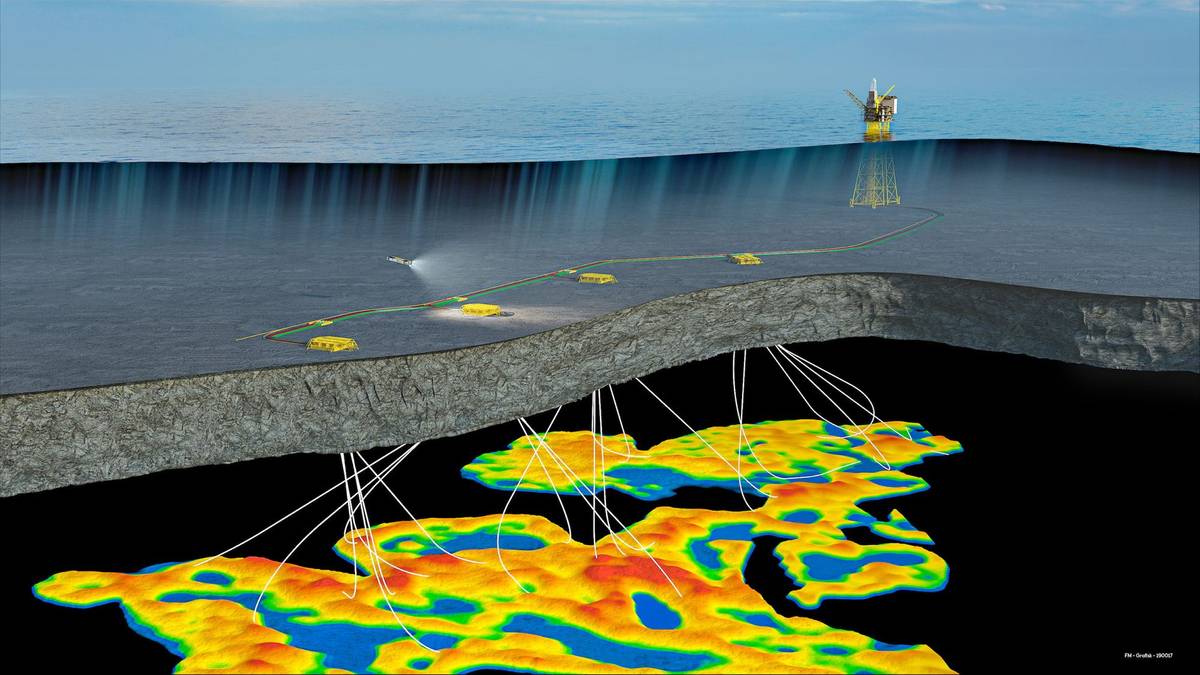There is a poorly understood but plausible chance winter temperatures could plummet in the UK even as global temperatures soar.
An emerging body of research is charting the risk that climate change could weaken or even collapse a major ocean current that brings heat northwards from the Atlantic into Europe.
In the absence of that warm front, Britain would be plunged into a new ice age in winter, battling frozen runways, roads, forests and farmland.
Arctic sea ice would blanket much of Scotland and most of the North Sea down to East Anglia by late winter.
Temperatures in London would reach lows of -19C, a staggering 16C colder than lows in the 1800s, before humans began changing the climate.
That's according to a new study published today that has modelled what a collapse of the so-called "AMOC" (Atlantic Meridional Overturning Circulation), combined with 2C of global warming, would mean for Europe.
In Edinburgh, changes would be even more drastic. The study found temperatures would fall below zero on 164 days in a year - that's almost half of the year.

All scientists know at this stage, more or less, is that the AMOC is probably less stable than previously thought.
They don't know how likely such a collapse is, how quickly it could unfold, and what the precise impacts would be.
What they do know, is that if it happens, it would be "quite devastating," said lead author Rene van Westen, from Utrecht University in the Netherlands.
"The AMOC is currently regulating the global climate. And if this shuts down, you will get substantial and drastic climate shifts... not only [in] Europe, it is something on a planetary scale."
And they say the risk has so far been overlooked.
What is the AMOC?
Snaking its way around the world, the so-called AMOC plays a crucial role in regulating both the European and global climate by circulating heat via the oceans like a conveyor belt.
But as the climate warms, it dumps more freshwater in the ocean via rainfall and melting ice, which could slow down the conveyor belt to a point where the system shuts down completely.
Arctic sea ice would creep much further southwards in winter, covering parts of Scandinavia and the Netherlands as well as Britain.

What would an AMOC collapse do to Europe?
Today's study, published in peer-reviewed journal Geophysical Research Letters, modelled what it would mean for Europe if the world warmed by around 2C, and the AMOC collapsed.
Edinburgh would in some years see cold extremes of almost -30°C - almost 23°C colder than in the pre-industrial climate.
In Cardiff, temperatures would reach -19.6C.
Meanwhile, sea levels would rise by 50cm, and rain would fall by 20%.
"The extreme winters would be like living in an ice age," said Professor Tim Lenton, an Exeter University scientist who also researches AMOC.
But bizarrely, summer temperatures would not be affected by the AMOC weakening, resulting in cold-hot extremes more common in continental weather systems.
That's because the sea ice would still melt in summer, and the effect of the 2C of warming would kick in.
"In extreme years, it would be like coming out of the freezer into a frying pan of summer heatwaves," added Prof Lenton.
"It is hard to over-stress how different a climate this is. Adapting to it would be a monumental challenge."
When could this happen?
The impacts suggested in this study are extreme and there remains a long list of questions.
Scientists don't expect the AMOC to fizzle out this century.
And if the world warmed by more like 4C, the warming effect would override the cooling effect of any AMOC collapse.
But Prof Richard Allan from Reading University said it is still "important to test the ground for these unlikely but high impact possibilities, in the same way that we insure our homes against improbable calamity".

Follow Sky News on WhatsApp
Keep up with all the latest news from the UK and around the world by following Sky News
It raises difficult and terrifying questions about what kind of climate we should be trying to adapt to.
Although scientists are undecided on whether the AMOC will die out, what they do agree on is that the complexity and weirdness of the climate system is why we should mess with it as little as possible.
Prof Allen added: "Even the mere possibility of this dire storyline unfolding over coming centuries underscores the need to forensically monitor what is happening in our oceans, and to continue building momentum across all sectors of society to cut greenhouse gas emissions which are driving our climate into dangerous, uncharted territory."

 5 months ago
36
5 months ago
36






















 English (US)
English (US)